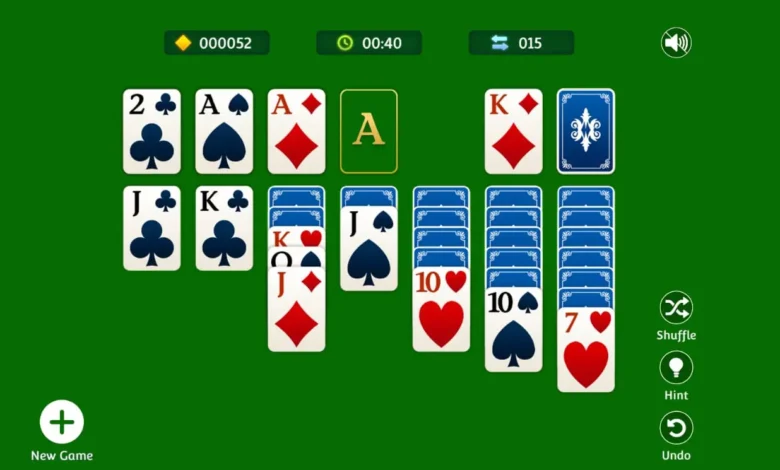Why a Simple Solitaire Game Can Help You Focus in 5 Minutes

In a world filled with notifications, task-switching, and constant distractions, finding a way to center your attention quickly can feel almost impossible. That’s where a simple solitaire game proves surprisingly powerful. This classic card game, often overlooked as a relic of early desktop computers, continues to hold its ground because of how efficiently it resets a tired or scattered mind. Within just a few minutes, it helps filter out the mental noise and draw your attention back to a singular, calming objective.
The Mental Reset Mechanism of Solitaire
When your mind is overloaded, most productivity tricks suggest stepping away from work or getting some fresh air. But not everyone has the luxury of a walk or a break when deadlines loom. A solitaire game presents a compact, efficient escape. Unlike modern mobile games loaded with distractions, advertisements, and noise, solitaire offers clean design and quiet concentration.
You’re presented with a familiar set of rules and a defined structure. With minimal instructions and no steep learning curve, you jump straight into gameplay. This immediate entry into a focused activity provides a break without pulling you into an overstimulating environment. The tactile rhythm of dragging cards, sorting suits, and thinking ahead subtly reactivates problem-solving regions of your brain without pushing it to the point of burnout.
Within five minutes, the challenge is just engaging enough to hold your focus but never aggressive enough to frustrate. It creates a soft mental shift like wiping a fogged lens so your view becomes clearer again. That’s why the solitaire game still has a place in productivity circles and digital mindfulness spaces.
Solitaire as a Structured Mind Exercise
The solitaire game isn’t just about placing cards in the right order. It’s about logic, foresight, and balance between planning and improvising. Even if you’re not consciously strategizing, your brain is gradually adjusting to short-term goals like moving the right card, freeing a hidden one, or creating a full suit. These tiny objectives sharpen focus and restore clarity.
Unlike endless scrolling or video binging, solitaire has a built-in endpoint. Whether you win or not, every session has a limit. That defined boundary creates a natural stopping point perfect for a short brain reset without spiraling into wasted time. Five minutes with a solitaire game can train your mind to enter, engage, and exit a focus zone without overstimulation or guilt.
There’s also the matter of patience. Each move demands a second look. Is there a better card to free up first? Should a king go into that empty column now, or can it wait? These tiny decisions reinforce intentional thinking. By practicing this discipline in a non-demanding setting, your brain becomes better at replicating this kind of measured attention during high-stakes tasks.
Why Solitaire Works Across Age Groups and Attention Spans
Part of the solitaire game’s broad appeal is its accessibility. It doesn’t rely on reaction time, character levels, or even a strong internet connection. Anyone from a teenager avoiding homework distractions to a senior enjoying a quiet moment can experience its benefits. The interface is predictable and slow-paced, which works in favor of people who need gentle engagement instead of high-speed stimulation.
Younger generations who grew up in a noisy digital landscape are now rediscovering this game for its ability to offer mental stillness. Adults trying to maintain their attention through back-to-back meetings find it useful as a brief reset tool. Even individuals with attention issues report that the simplicity of a solitaire game helps them find a temporary focus anchor. There’s no overstimulation, no overthinking just a set of decisions at your own pace.
Solitaire taps into a calming zone similar to meditation but adds an element of logic. That combination gives your brain something to do while still encouraging mental rest. It’s ideal for those who struggle with empty quiet time or can’t meditate easily but still crave a calming activity.
Finding a Daily Focus Ritual in Solitaire
Adding a solitaire game to your routine can be as simple as opening it during your coffee break or while waiting for a call to start. The key is consistency. By pairing it with a daily moment, it becomes a ritual one your brain begins to associate with refocusing. That short round between tasks becomes your mental bridge from one attention state to another.
If you find your mind running in circles before a meeting or losing momentum in the afternoon, playing for just five minutes can pull you back. Over time, the habit teaches your brain to expect clarity after gameplay. It creates a soft reset that doesn’t feel like wasted time but rather a calm transition.
The solitaire game doesn’t promise long-term attention mastery. It doesn’t replace focused work or mindfulness practice. But what it does offer is a fast, structured, and satisfying way to quiet the mental clutter. That, in today’s attention economy, is rare and valuable.
